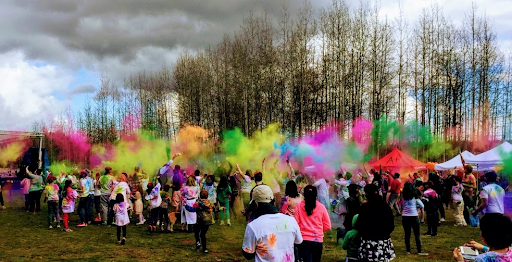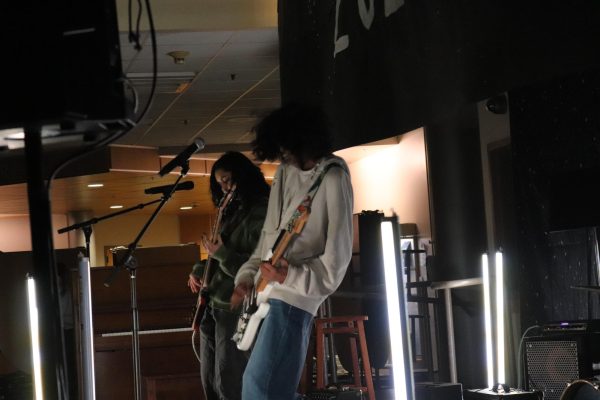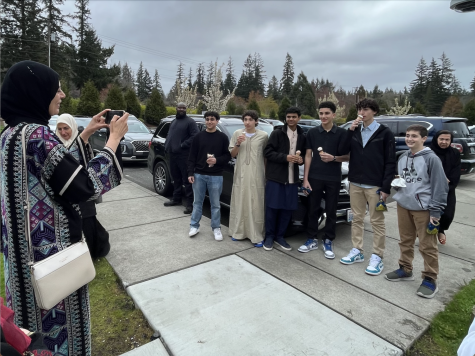As Holi Celebrations Become More Common in the U.S Hindu Students Warn Against Cultural Appropriation

April 5, 2022
A group of people gather around outside. Colored powder is thrown into the air leaving vibrant colors to stain anything it touches. This is Holi, also known as the Festival of Colors.
The Hindu holiday marks the beginning of spring and is symbolic of the triumph of good over evil. The festival marks Lord Vishnu’s triumph over King Hiranyakashyapu who killed anyone who disobeyed him or worshiped other gods. King Hiranyakashipu perished by being burned in the prye.
The eve before Holi is known as the celebration of Holika Dahan which is a bonfire event. The next day is the powder throwing.
This year Holi was celebrated on March 18, 2022. In Sammamish there are plenty of Holi festivals around the area which Skyline students attend.
“I celebrate Holi by going to the community celebrations that are hosted by my community leaders {…} where Indian food is distributed, lots of party and dancing, and color distribution.” Somya Prasad, a junior said.
Each of the powder’s colors has a meaning behind it. Blue represents Lord Krishna’s blue skin. Green represents Vishnu’s incarnation as prince Rama. Yellow is Vishnu’s yellow garment he wove for himself from the rays of sun and Krishna is portrayed wearing a yellow garb. Red is seen as the color of life.
Hindu students feel it is a great holiday to connect with their roots and it also comes with a lot of good memories.
“It’s a really fun time to celebrate with family and friends and to explore your culture.” Harini Swaminathan, a senior, said.
Holi is predominantly celebrated in India, however; Holi has recently gained popularity around the world. All over the country you can find people organizing color runs and Holi festivals. It has given those who practice Hinduism an opportunity to be connected with their culture back home. However Holi has been met with some controversy in the past couple of years from people who practice Hinduism.
In parts of the world, Holi celebrations are put together by people who have little knowledge of the origins and culture and end up making a decent profit off of it. Some even see it as cultural appropriation when people celebrate Holi without knowing anything about Hinduism or the meaning of Holi.
“I personally feel like people should be able to do what they want but as long as they acknowledge and know that this isn’t their culture and it comes from the Hindu religion.” Prasad said, “It really rubs me the wrong way when certain people who were not welcoming or ridiculed Indian people in the past are out here doing color runs and getting henna.”
On top of not recognizing where these traditions come from, people who celebrate these traditions without knowing the roots of them are often seen making fun of Asian Indian people. The food is often ridiculed and students who would bring traditional food slowly stopped bringing it. Indian accents and comments such as ‘Indian people smell’ can be heard quite regularly.
“I think that what some people do is celebrate the things that [they] enjoy from the culture but then make fun of other aspects of it,” Sudip said.
Hindu students feel like it is important that this is acknowledged as they face a lot of unkind comments. Seeing people go out and embrace aspects of their culture but then go make snarky comments about the people in the culture is inconsiderate.
“Growing up there were a lot of very insensitive jokes being thrown at us. We were raised in a culture where we avoid conflict. So I’ve always felt like our voices were unheard.” Prasad said.
As Holi celebrations gain more popularity, Hindu students hope to see people acknowledge the roots of tradition and respect the culture.







